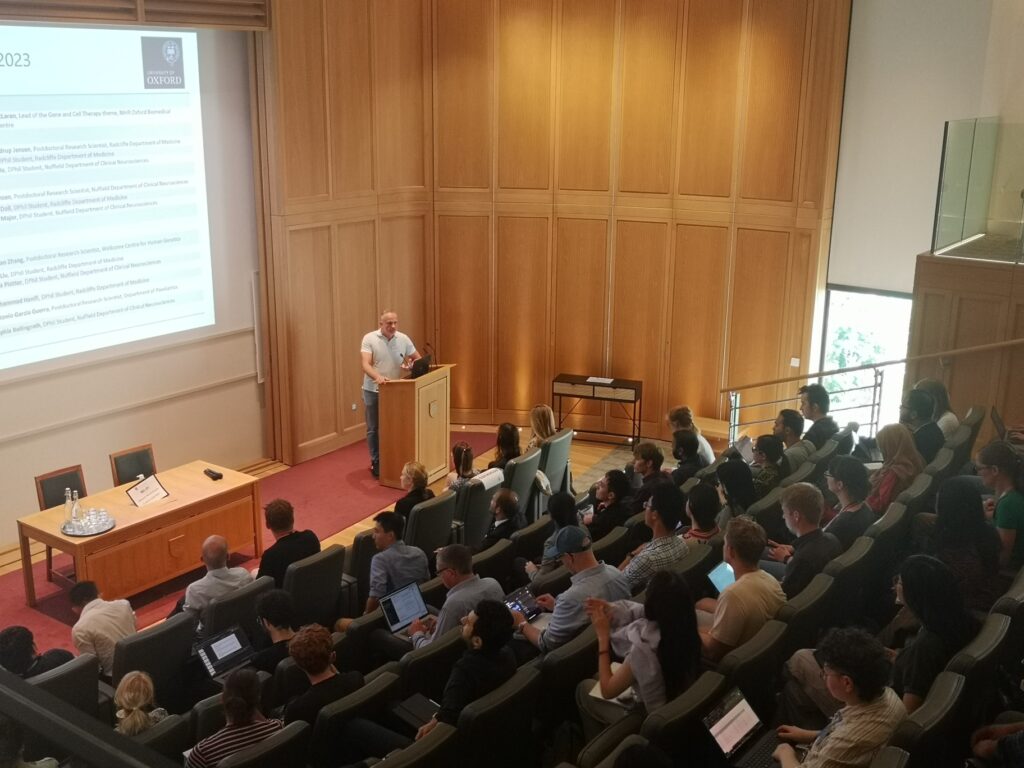The NIHR Oxford BRC’s Gene and Cell Therapy Theme has organised a workshop to discuss how researchers from a range of disciplines are using new CRISPR gene editing tools or applying CRISPR to their research in innovative ways.

The workshop, held on 20 June at Merton College in Oxford, attracted more than 100 early career researchers and DPhil students, who were able to share CRISPR-related technical expertise, practical advice and troubleshooting tips with their peers in other BRC theme and University departments.
CRISPR, which stands for Clustered Regularly Interspaced Short Palindromic Repeats of genetic information, involves finding a specific piece of DNA in a cell and then altering it. It is regarded as potentially revolutionary for medicine, allowing us to not only treat but also prevent many diseases.
The workshop focused on CRISPR delivery systems, prime editing (where one strand of DNA is broken), base editing (where both strands of DNA are cut) and RNA editing.
The BRC Theme Lead for Gene and Cell Therapy, Professor Robert MacLaren, who organised the workshop said: “Gene editing is clearly going to be a huge future treatment for a number of diseases – It allows us to repair the DNA or RNA at its most fundamental level. In many ways that is much more efficacious because if you can correct a gene defect, the cell will regulate that gene expression exactly the way it should do – that cell would be indistinguishable from a normal healthy cell.
“I realised that a lot of my colleagues around Oxford working on different diseases are working on gene editing, and they’re doing the same as we’re doing in the retina – in the heart, the lung, liver or kidneys. We’re all trying to solve the same problems, so this workshop is an opportunity to bring everyone together from the different departments so they can find common ground both for collaborations and troubleshooting.”
The meeting was restricted to Oxford researchers, with an emphasis on younger ones. The confidential nature of the workshop meant that they could disclose anything, as they would in their research groups with no future implications for intellectual property.
Professor MacLaren added: “At the moment, we need to concentrate our efforts on the technical aspects of CRISPR – designing constructs, viral vector delivery systems that are efficacious, avoiding off-target effects and so on. There is still a lot of basic science we need to work out. We’ve got a lot of very clever people in Oxford and, rather than one or two people in each groups trying to solve all the problems themselves, we’ve not got over 100 people registered for this meeting – that’s a lot of brainpower and I’m sure we can learn from each other’s experiences.”